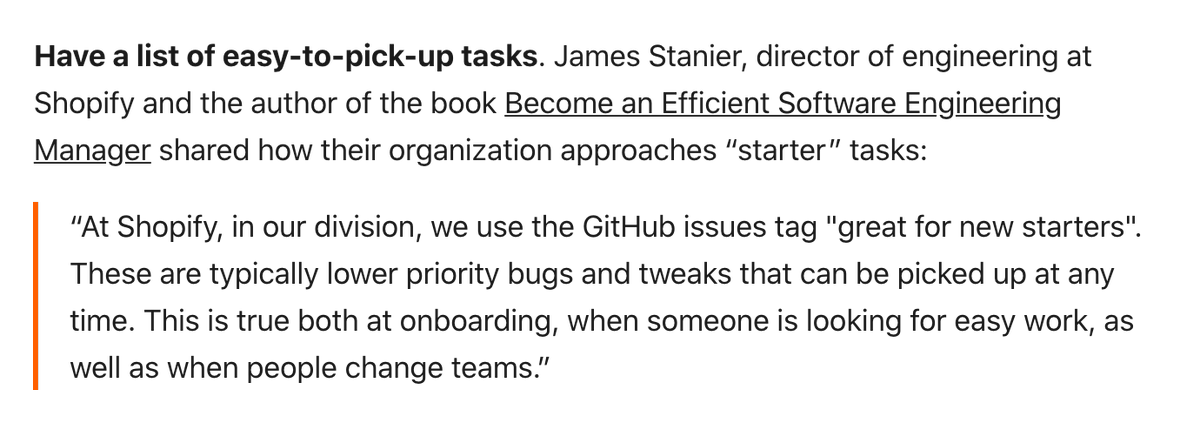
Growing a junior-heavy engineering team. How do you "level up" people, keep executing, and keep hiring?
The bad news: you probably don't. Something's got to give.
The good news: there are plenty of approaches that work. Collected several of them:
newsletter.pragmaticengineer.com/p/growing-a-ju…
The bad news: you probably don't. Something's got to give.
The good news: there are plenty of approaches that work. Collected several of them:
newsletter.pragmaticengineer.com/p/growing-a-ju…
Special thanks to reviewers/contributors @ebiatawodi, @jakozaur, @hkarthik, @MisiekWegrzyn & @cbzehner (quoted).
They're all engineering managers generous with their knowledge worth following (I do!) - save for @ebiatawodi who is a product director you should follow :)
They're all engineering managers generous with their knowledge worth following (I do!) - save for @ebiatawodi who is a product director you should follow :)
If there's one piece of advice I can give to managers with junior-heavy teams: be realistic. Convey this realistic thinking upwards.
Yes, less experienced engineers do learn, and learn quickly. But don't expect miracles like shipping faster, or shipping reliably.
Stay grounded.
Yes, less experienced engineers do learn, and learn quickly. But don't expect miracles like shipping faster, or shipping reliably.
Stay grounded.

Two other contributors I missed mentioning: @__mharrison__ shared his take on (virtual) classroom training and @jstanier mentioned a very cool idea their org does at Spotify on "great for starters" task.
Sorry for missing out, and here are few great thoughts from them:

Sorry for missing out, and here are few great thoughts from them:


• • •
Missing some Tweet in this thread? You can try to
force a refresh




